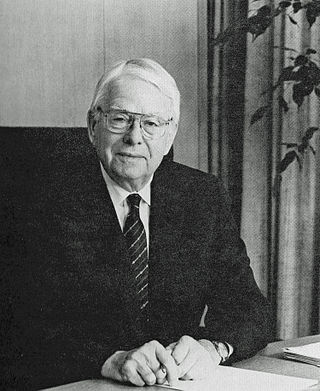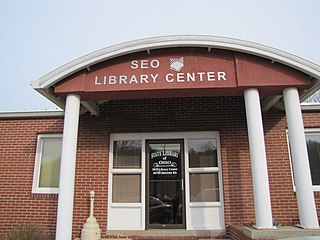This article needs additional citations for verification .(December 2008) |

The non-profit Colorado Library Consortium (CLiC) is a library-related organization.
This article needs additional citations for verification .(December 2008) |

The non-profit Colorado Library Consortium (CLiC) is a library-related organization.
A full staff list can be found at: https://www.clicweb.org/about-clic/contact/
"In the late 1960s, Colorado libraries began to form regional service systems. In 1966 and 1967, seven regional systems were established to provide geographical convenience. That is, mountain regions grouped together as did metropolitan areas and the plains portions of the state. In 1975, Colorado State House Bill 1384 made the regional service systems official for all publicly supported libraries - public libraries, school media centers, governmental institutions and academic libraries. The legislature aimed to develop and coordinate cooperative library services including interlibrary loan, document delivery and purchasing. Private, for-profit libraries joined the regions as associate members, paying for desired services. Overall, the regional systems became known as CLiC, an acronym from Colorado Libraries in Cooperation, organized in 1976 in response to proposed state budget cuts.
Some services to Colorado libraries included the McNaughton Plan (a shared book leasing program for small public libraries); a courier to deliver materials from one library to another; assistance with obtaining state, federal and private grants; coordinated book purchasing at lower prices; shared consultant services, especially for technical computer equipment; and workshops directed at continuing education for librarians. Directors of the seven systems visited member libraries to establish communication and to keep informed of the needs of individual libraries within the systems.
Each regional service system employed an executive director with a small office staff. Regional member libraries sent representatives to a membership council which elected a governing board responsible for oversight of the regional service system, for budgeting the region's share of state funding, for supervision of the director and for hiring and firing of the office staff. Most governing boards met monthly. The director reported to the board, writing an annual report, planning services for the area and helping develop the next year's budget.
As computerization advanced, the regional service system offered training, consulting services, equipment repair and database searching services. Development of Union Lists aided in interlibrary loan. At first, the updated lists from other libraries arrived on microfiche. Gradually, the libraries computerized their holdings. The spread of the worldwide web in the 1990s led to shared search systems and the development of on-line catalogs accomplished with the help and direction of the regional directors.
In 2003, Governor Owens vetoed the section of the Colorado State budget that funded the Regional Library Service Systems amongst other budget cuts affecting a large number of libraries in Colorado. [2] Each of the regions closed their offices and laid off staff. By the end of 2004, the Regional Library Service Systems no longer existed. A single, statewide entity called the Colorado Library Consortium was formed in 2004 [3] to serve Colorado as a whole with one director and one office staff located in the Denver metropolitan area. [4] [5]
Interlibrary loan is a service that enables patrons of one library to borrow physical materials and receive electronic documents that are held by another library. The service expands library patrons' access to resources beyond their local library's holdings, serving as "an integral element of collection development" for libraries.

The California State Library is the state library of the State of California, founded in 1850 by the California State Legislature. The Library collects, preserves, generates and disseminates a wide array of information. Today, it is the central reference and research library for state government and the Legislature. The California State Library advises, consults with and provides technical assistance to California's public libraries. It directs state and federal funds to support local public libraries and statewide library programs, including Institute of Museum and Library Services (IMLS) grants. The California State Library's mission is to serve as "...the state’s information hub, preserving California’s cultural heritage and connecting people, libraries and government to the resources and tools they need to succeed and to build a strong California." With the exception of the Sutro Library in the J. Paul Leonard Library at San Francisco State University, the other three branches are located in Sacramento, California, at 914 Capitol Mall, 900 N Street and at the State Capitol.

The Public Information Network for Electronic Services is the nearly statewide library consortium and its online library catalog of the Georgia Public Library Service. By June 2017, the catalog consisted of books from 284 library facilities in 143 counties across the U.S. state of Georgia with a collection size of 10.6 million items, all of which are searchable by anyone with a PINES library card which can be obtained free of charge from any PINES-participating library.

Frederick Gridley Kilgour was an American librarian and educator known as the founding director of OCLC, an international computer library network and database. He was its president and executive director from 1967 to 1980.
The International Coalition of Library Consortia (ICOLC) is an informal, self-organized group of library consortia from around the world; it exists for strategic and practical discussion of issues of common interest among the consortia members. The ICOLC first met informally as the Consortium of Consortia (COC) in 1997. Over time, its name was adjusted to reflect its increasingly global character.
The Ohio Library and Information Network (OhioLINK) is a consortium of Ohio's college and university libraries and the State Library of Ohio. Serving more than 800,000 students, faculty, and staff at 88 institutions with 117 libraries, OhioLINK's membership includes 16 public universities, 23 community/technical colleges, 48 private colleges and the State Library of Ohio. OhioLINK serves faculty, students, staff and other researchers via campus-based integrated library systems, the OhioLINK central site, and Internet resources.
The Colorado Alliance of Research Libraries is an association of a number of libraries in Colorado and Wyoming.
The TexShare program is a statewide resource-sharing consortium of hundreds of member libraries in Texas, United States administered by the Texas State Library and Archives Commission (TSLAC). The TexShare program maximizes the effectiveness of library expenditures by enabling member libraries to share staff expertise, share materials electronic and print formats, pursue joint purchasing agreements on electronic databases, and encourage the cooperative development of Texas libraries statewide. TexShare is made up of Texas academic libraries, public libraries, and libraries of clinical medicine. TexShare is a member driven consortium that exists with the support and cooperation of Texas member libraries.

NELINET, Inc. was the not-for-profit membership cooperative of academic, public, school and special libraries and other information and cultural organizations in New England in the United States. It was formed as a program of the New England Board of Higher Education in 1966, and became independently incorporated in 1979. It merged into Lyrasis in 2009.

The State Library of Ohio is a state agency that provides services to state government and all types of libraries to ensure that all Ohio residents, rich or poor, rural or urban, receive the best possible library service and are able to engage in lifelong learning which strengthens the economic health of Ohio.
Libraries in Clackamas County (LINCC) is a consortium of the public libraries of Clackamas County, Oregon. It was established in 1977 when the first county-wide funding levy was approved by county voters. LINCC is a resource and revenue sharing network with a single library computer system.
The Northern New York Library Network is one of New York’s nine Reference and Research Resources Councils. These organizations are chartered by the New York State Board of Regents and charged with facilitating cooperative library services and improving reference and research resources for the people of New York.

The Serving Every Ohioan (SEO) Library Center of the State Library of Ohio, located in Caldwell, Ohio, supports a consortium of 92 library systems at 224 locations in 46 counties. The SEO Library Center houses, maintains and supports a centralized shared catalog database that includes over 8 million items with a patron database of 930,000+ borrowers. The SEO Library Center staff provides technical support as well as software support for all consortium members, alleviating the burden of specialized IT functions on small libraries. The Center houses over 200,000 materials which includes books, entertainment and public performance DVDs, videos and 16mm films, books on tape/cd, playaways, MP3 cds, Ellison letter dies and microfilm/fiche. The SEO Library Center also provides and maintains training facilities through a mobile computer lab and the F. Ward Murrey Annex facility to state agencies and public libraries across Ohio.
The Massachusetts Library System was established in 2010. The system provides the following core services: consulting, training & professional development, cooperative purchasing, research & development, summer library program, and the following services as part of resource sharing: delivery, mediated interlibrary loan, journal article document delivery, MassCat, and electronic content, including statewide databases and eBooks in collaboration with the Massachusetts Board of Library Commissioners." It operates from offices in Marlborough and Northampton, Massachusetts.
The Southern Ontario Library Service (SOLS) was a "non-scheduled agency" of the Ontario Ministry of Tourism and Culture in the Canadian province of Ontario. Established in 1989, SOLS delivers programs and services to Ontario public libraries in the southern half of the province, in a geographic area bounded by Windsor in the south, to Ottawa and the Quebec border in the east, and as far north as Muskoka. Almost 200 library systems are included in this group, ranging from libraries in small communities to libraries in cities with populations in the hundreds of thousands. The Ontario Library Service North (OLS-North) performs equivalent service for the northern portion of the province.
A library consortium is any cooperative association of libraries that coordinates resources and/or activities on behalf of its members, whether they are school, public, academic, special libraries, and/or information centers. Consortia exist on a variety of levels, e.g., local, state, regional, national or international. Libraries commonly belong to multiple consortia. The goal of a library consortium is to amplify the capabilities and effectiveness of its member libraries through collective action, including, but not limited to, print or electronic resource sharing, reductions in costs through group purchases of resources, and professional development opportunities. The “bedrock principle upon which consortia operate is that libraries can accomplish more together than alone.”
Tampa Bay Library Consortium (TBLC), with headquarters in Tampa, Florida, is a nonprofit library cooperative that assists hundreds of libraries in the Central and West Florida regions. TBLC serves public libraries, academic libraries, school libraries and special libraries. The TBLC membership serves 6.3 million people in the State of Florida.
Central Rappahannock Regional Library (CRRL) is a public library system that serves the city of Fredericksburg and Spotsylvania, Stafford, and Westmoreland counties in Virginia. The library system is within Region 5 of Virginia Library Association (VLA).
The Arrowhead Library System (ALS) is a library system consisting of seven public libraries and several academic/school library affiliate members, all serving Rock County, Wisconsin. The headquarters of the library system is located on the lower level of the Milton Public Library in Milton, Wisconsin.
Consortium of Academic and Research Libraries in Illinois is an academic consortium of public and private university and research libraries in the state of Illinois.